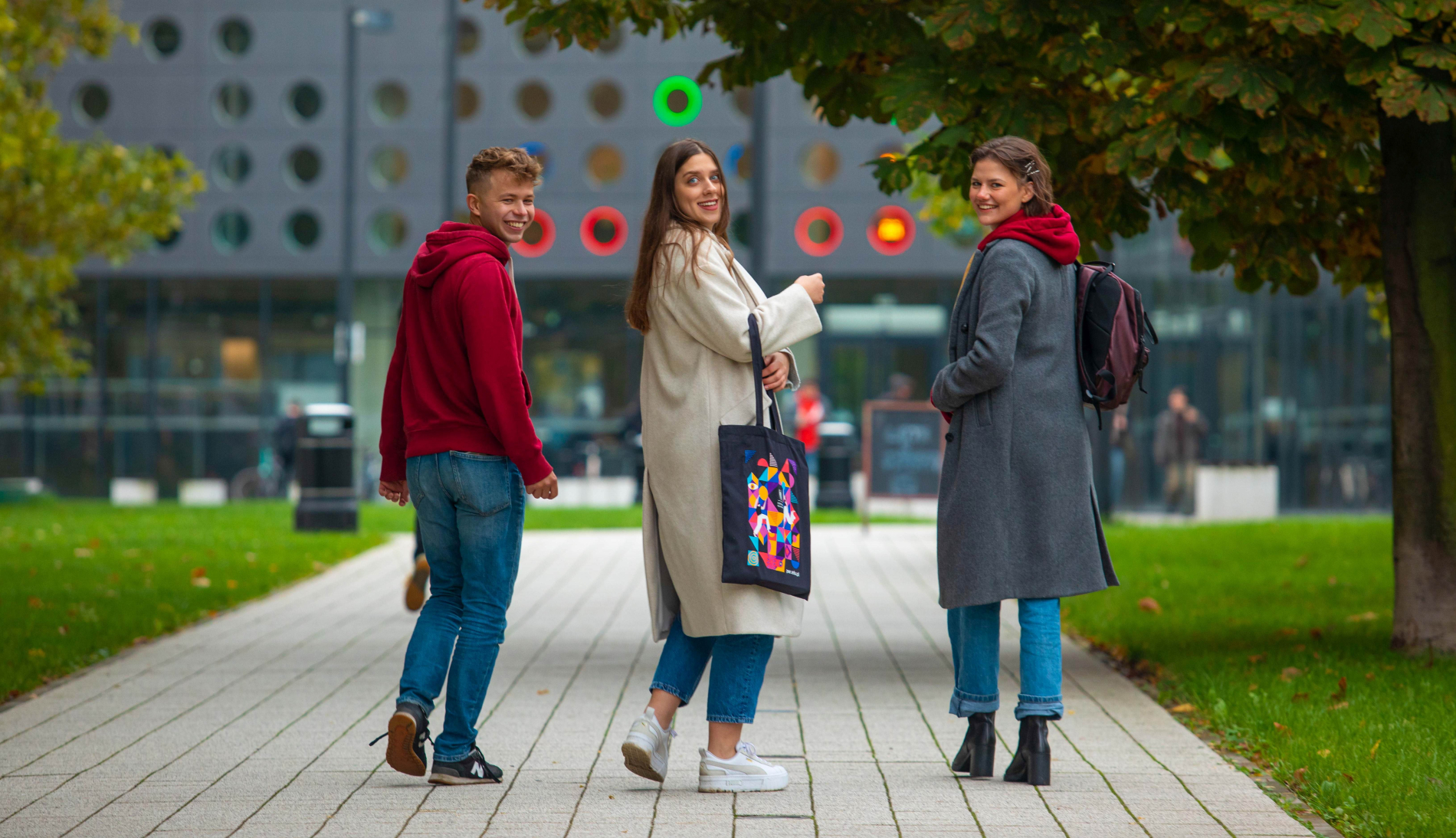
The reorganization of the student sector and the plan for the Student Innovation Campus are further WUST activities related to the development of student activity. The benefits will go mainly to student research clubs at the University.
Over 220 research clubs, student organizations and cultural agencies currently operate at Wrocław University of Science and Technology, and many of them are already recognized brands not only in the country, but also around the world. You can read about the student research clubs operating at our Faculty here.
“Students are the pride of our University. Their achievements, awards and medals are a source of great satisfaction for our entire community,” emphasizes Prof. Arkadiusz Wójs, rector of the University. “They are also the largest group of people who spend a lot of time on our campus every day, getting involved in the development of their projects. Some of these projects are still growing, others cannot reach a higher level due to organizational problems or spatial limitations. Hence our decisions to make adjustments to the office of the vice-rector for student affairs and to create the Student Innovation Campus,” he adds.
The University treats the development of infrastructure available to students and doctoral students as a priority; a provision including this statement also appeared in the Strategy for Wrocław University of Science and Technology.
SIC for everyone
Conversations and consultations regarding the Student Innovation Campus (SIC) allowed this new idea to begin to take real shape. The initial concept was to build a completely new student pavilion, but ultimately the decision was made to adapt the place already used by student research clubs, i.e. part of the Gdańska Campus (the area at Sopocka and Gdańska streets).
“We wanted to create a place where – following the example of western universities – active students would not only work on their projects, but also self-develop by cooperating, consulting and observing what their colleagues are doing. In such a way they can get to know each other, be inspired and learn from each other,” says Dr. Piotr Górski, vice-rector for student affairs.
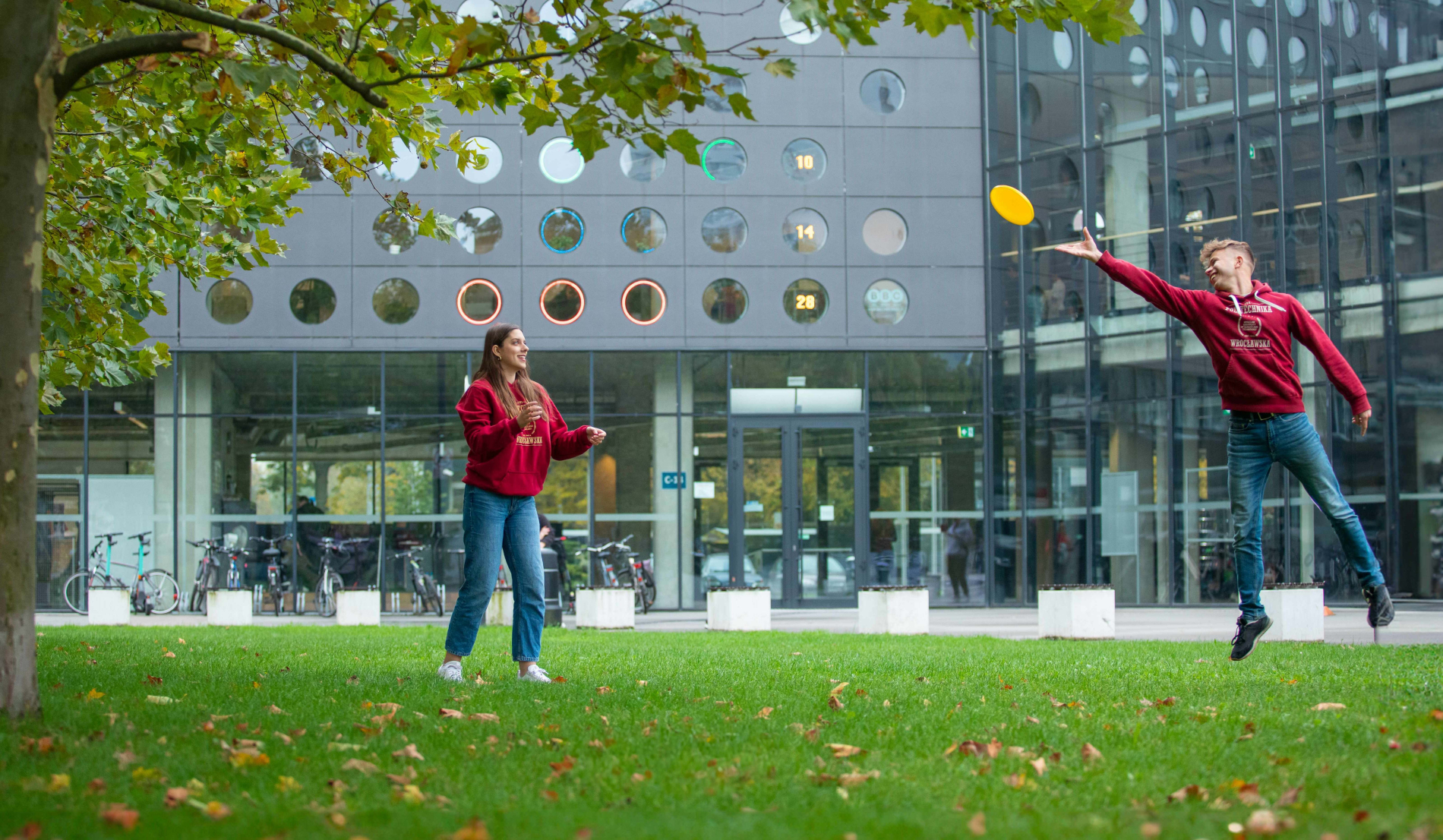
And the Rector Prof. Arkadiusz Wójs adds that the development of a friendly, green and accessible campus is one of the strategic aspects for the University's infrastructure. “Our vision assumes the modernization of the existing space, but also its expansion,” says Prof. Wójs. “It will allow us to create more workshop, laboratory, co-working and training spaces on the campus.
At Gdańska and Sopocka streets, there will also be rooms dedicated to projects requiring specialized workstations, rooms for organizing conferences and events, and places to relax (cafe, kitchen, relaxation zone). There will also be space for start-up incubations and spin-off/spin-out companies.
Need for space
For many years, the Gdańska Campus has been the home of the WUST Racing Team. Currently, this student research club has 80 members.
“We can't wait for a space that will allow us to further develop,” says Paweł Wójcik, the team's leader. “And I mean both the design and documentation stage and the development stage, especially of the high-voltage battery pack. Carrying out this type of work in the current space is very difficult.
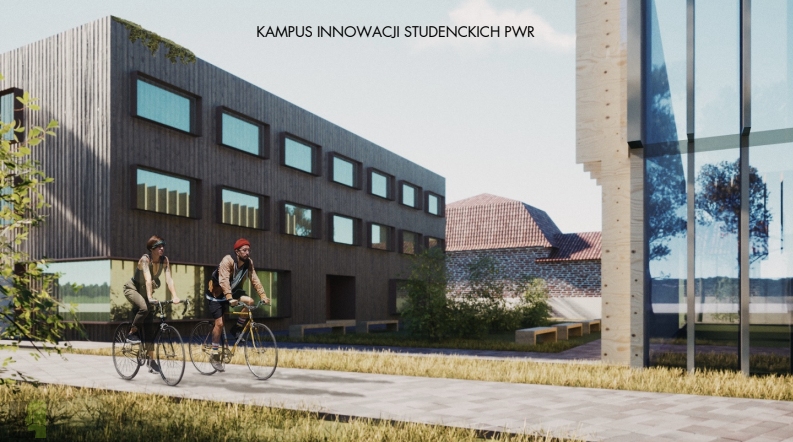
A team from the Humanization of the Urban Environment Research Club, headed by Dr. Jerzy Łątka from the Faculty of Architecture, in cooperation with the Student Government, has already developed a preliminary concept of what SIC may look like. Dr. Piotr Górski: “The final shape will depend, among others, on: on the decision of the city's historical building conservator and on the estimated costs.
The plan is to allow access to the rooms seven days a week with the student ID. Event dates in the conference buildings will be electronically booked so that those interested can easily plan their activities.
There will be tools on the site that can be borrowed by anyone interested, and everything will be supervised by a management team, technical staff, and supervisors of student research clubs. The planned usable area of the campus is over 5.5 thousand square metres.
The authors of the concept are architects: Dr. Jerzy Łątka, Kinga Wasilewska, B.Sc., Orest Savytskyi, B.Sc., Julia Myślińska, Lidia Kolorowicz and Agnieszka Sieczek.
Corrections in the student sector
In order to more effectively support student activities at WUST, changes were also necessary in the administrative units supporting student activity. That is why the Student Activity Support Department started operating at the beginning of 2024. It consists of four sections responsible for: canteens, financial services, organizations and events, and support for student organizations.
“We have analysed the process that students who want to organize an event at the university or apply for a grant or funding currently have to go through. By talking to the local government and directly to students, we have developed a new path that will be faster and simpler,” explains Dr. Piotr Górski.
Hence, among others, the decision to establish two completely new sections. One supporting student activities and the other related to the organization of parties and events.
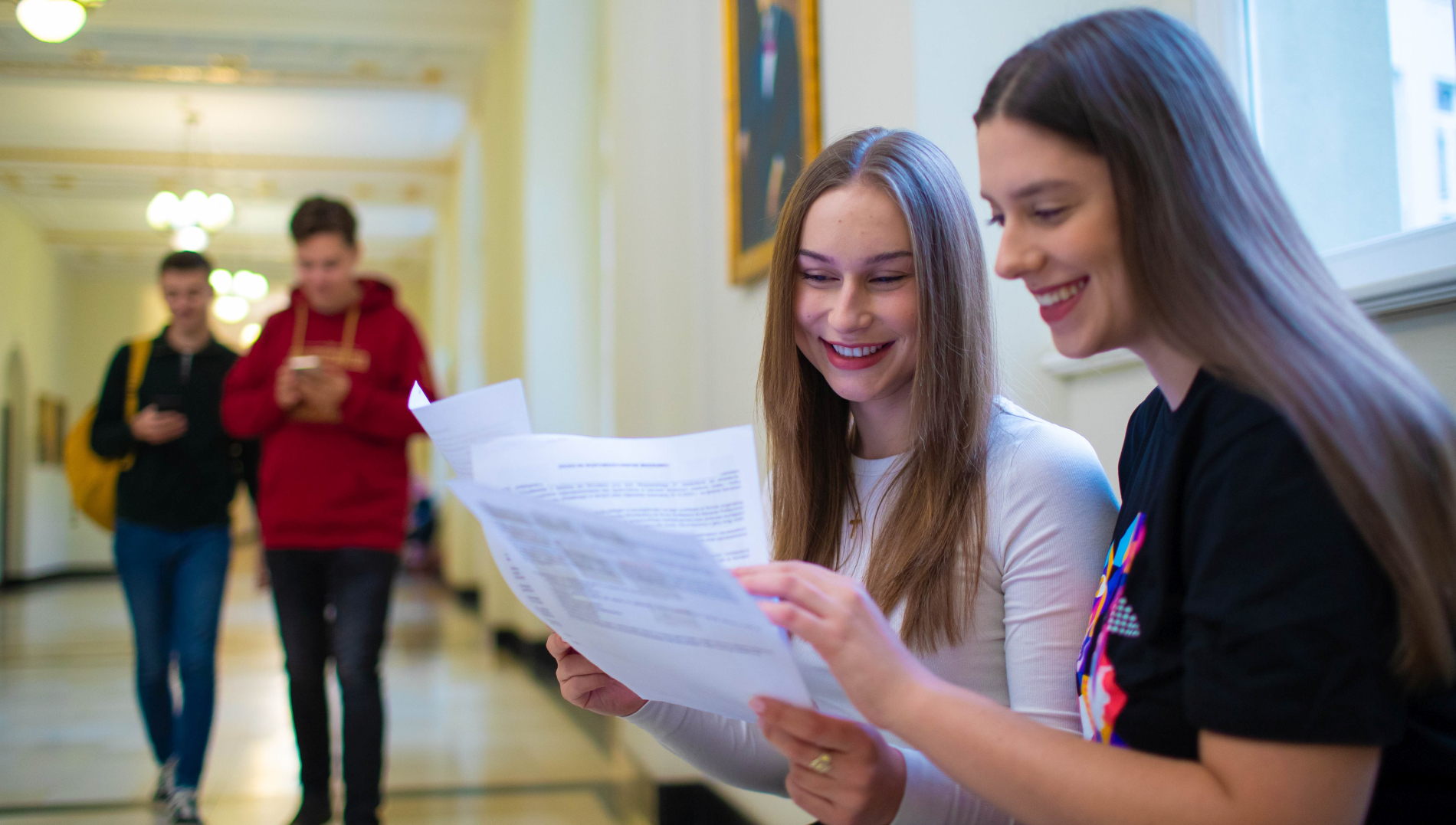
In the first one, students will receive information and assistance related to every aspect of activities carried out by research clubs, student organizations, cultural agencies and the Student Government. “We will provide specific assistance, both organizational and logistical. We will also be willing to jointly initiate new projects and develop new student ideas, says Katarzyna Szybalska, who has been involved in the development of student activities at WUST for over two years.
“My daily cooperation with students, as well as with their supervisors in research clubs and support units, gave me a lot of knowledge about the needs in this area. Students know that they can always count on me and often treat me as a member of their teams,” adds Katarzyna Szybalska. “This trust will help us here, because we want every student project at WUST to receive the best possible support, so that there can be even more medals and successes.”
On the other hand, a team established in the event organization section will comprehensively support students in planning and implementing various events. “The main place for the "production" of events, concerts, conferences and hackathons will, of course, be the Student Culture Zone,” says Łukasz Ptaszek from the Student Events Organization Section. “However, of course, our activities will also cover the entire campus, and sometimes also the city.
The section's task will be to provide students with such a support that each initiative has a chance for professional implementation, regardless of the experience of individual organizers. As a result, we want to improve the quality of student events,” explains Łukasz Ptaszek.
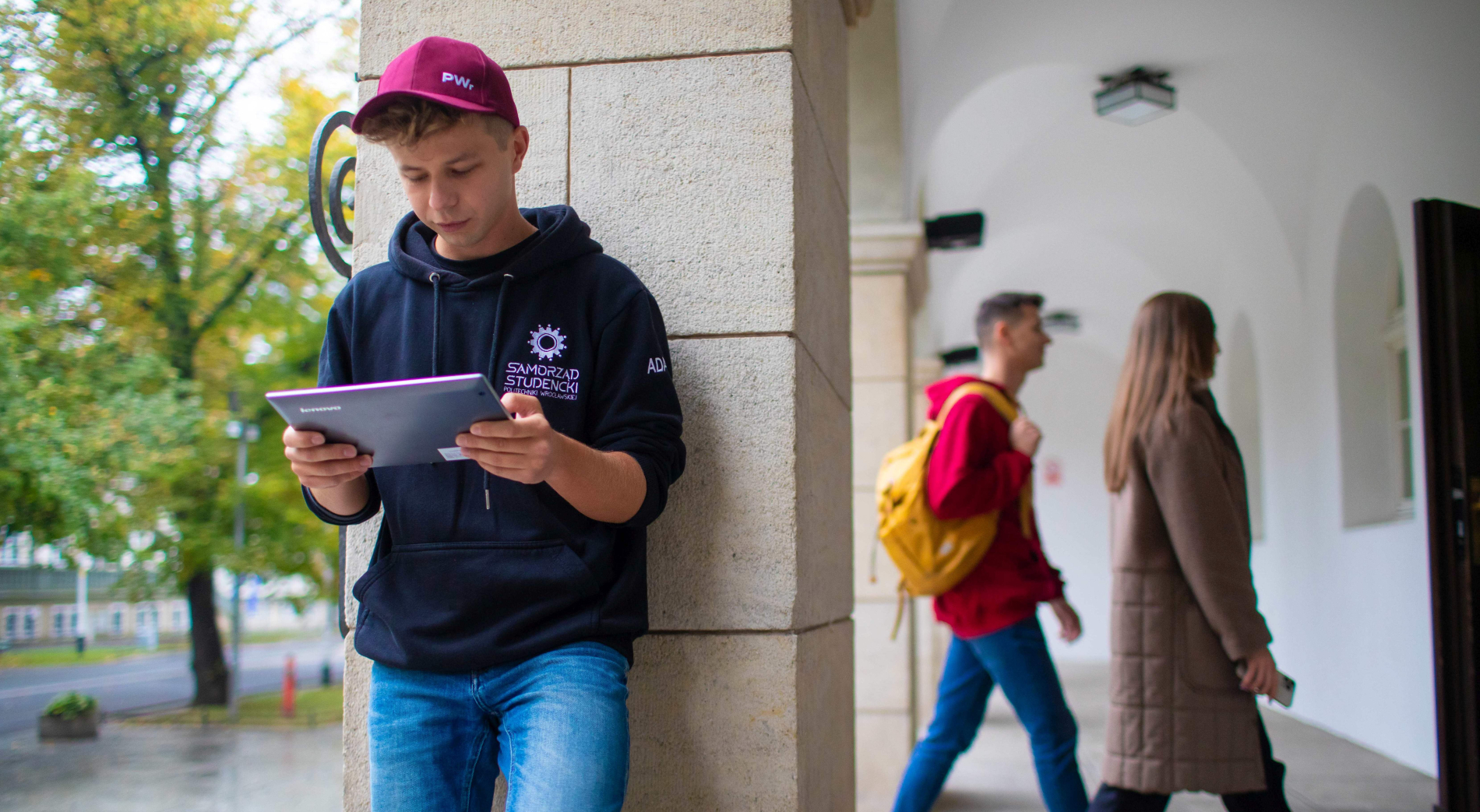
The Financial Services Section will certainly become a very important place for students who have to deal with financial formalities when organizing events or projects. “We will make this path easier and more understandable for them,” emphasizes Agata Bartnik-Pietruszka, head of the section. She adds that from her perspective the most important thing for students is to feel confident when using the support offered in the section.
“We want to be not only a place where formalities can be handled, but also a partner who supports students at every step. Current financial services, subsidies, and expenditure reports – we try to make all of this more friendly and understandable,” adds Agata Bartnik-Pietruszka.
The current changes are also the result of many conversations with local government representatives. “The structure of the entire division is now more intuitive for us,” says Szymon Łakomy, president of the WUST Student Government. “These corrections will also help facilitate the circulation of documentation and simplify applicable procedures. We especially hope to shorten the time needed to organize student events,” he adds.
It was also important for the Student Government to create specific sections whose clearly defined competences would correspond to the specific areas of support offered to student activity. “We strongly believe that the new solutions will positively influence the development of all student research clubs, agencies and organizations operating at Wrocław University of Science and Technology. After all, this was our goal when we worked on them,” emphasizes Szymon Łakomy.




